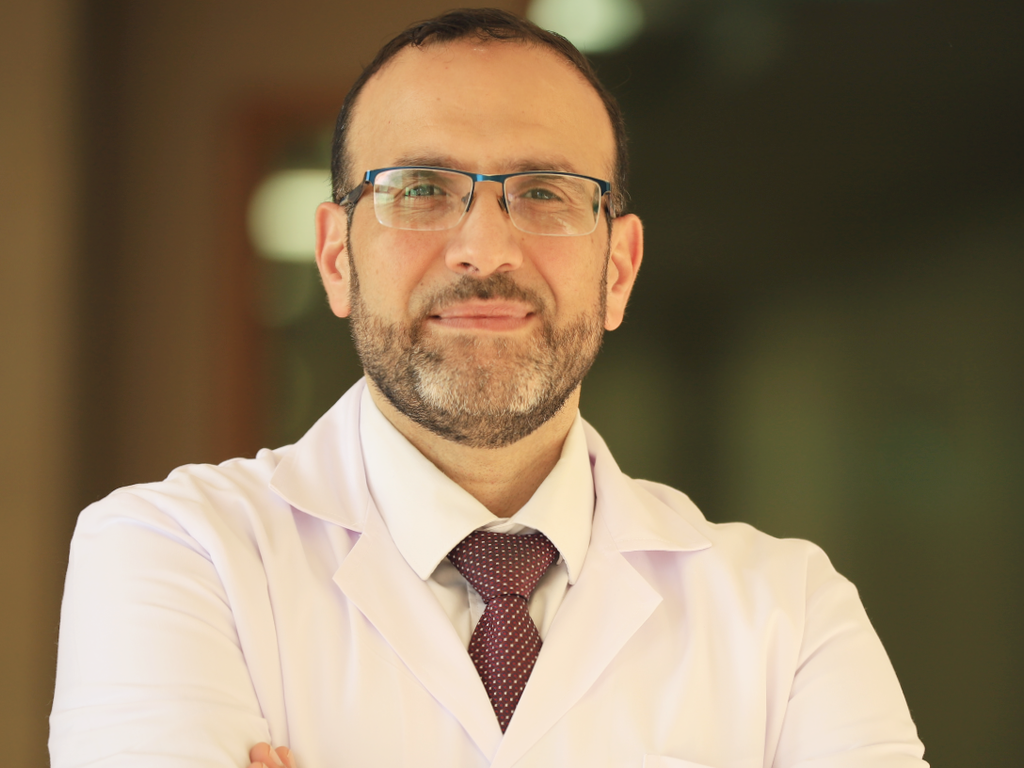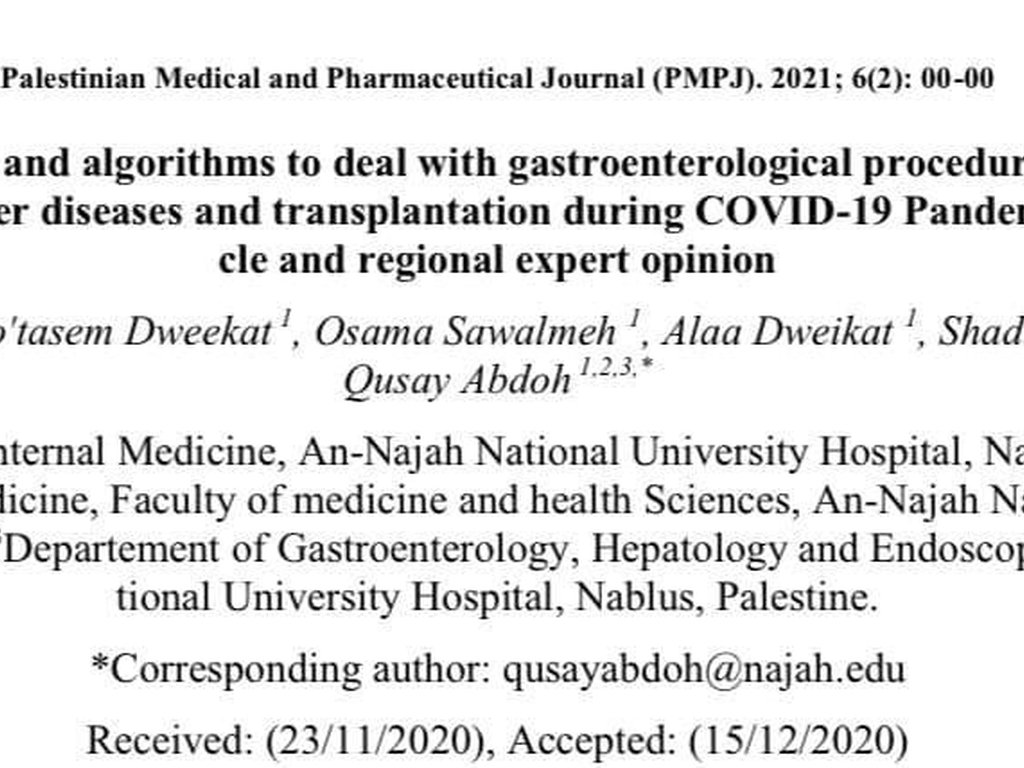A specialized medical team from An-Najah National University Hospital, led by Dr. Qusai Abdo, a consultant in liver diseases, gastroenterology, endoscopy, and internal medicine, along with a team of consultants and specialized doctors in internal medicine and the digestive system, provided recommendations on how to deal with medical cases within their field of expertise in light of the spread of the novel coronavirus (COVID-19). The pandemic has significantly prompted healthcare institutions worldwide to adapt their systems to the new requirements it imposed.
These recommendations come after a series of continuous meetings, extensive discussions on the latest advancements in the field, a comprehensive review of international recommendations on the subject, and the practical experiences of cases handled in the hospital and outpatient clinics, all conducted by the research team. The team aimed to apply the best standards of scientific research and modern standard methods to provide the best recommendations.
The scientific study covers a wide range of aspects, including gastrointestinal endoscopy, chronic ulcerative inflammations (such as Crohn's disease and chronic ulcerative colitis), chronic liver diseases, liver cirrhosis, and liver transplantation.
Dr. Sa'ed Ziyad, the editor of the Palestine Medical and Pharmaceutical Journal and the director of the Clinical Research Center at the hospital, explained that the medical research team's response was in line with global recommendations, particularly those of the World Health Organization (WHO). They aimed to harmonize with international practices recommended to enhance measures aimed at preventing the spread of the new coronavirus (COVID-19). Healthcare providers around the world are tirelessly working to provide safe healthcare services to all patients to achieve the best treatment outcomes and minimize the risk of infection with the virus.
The research document is titled "The Best Medical Approach for Managing Cases of Gastrointestinal and Liver Diseases and Endoscopy during the COVID-19 Pandemic."
- hitcount : 80


